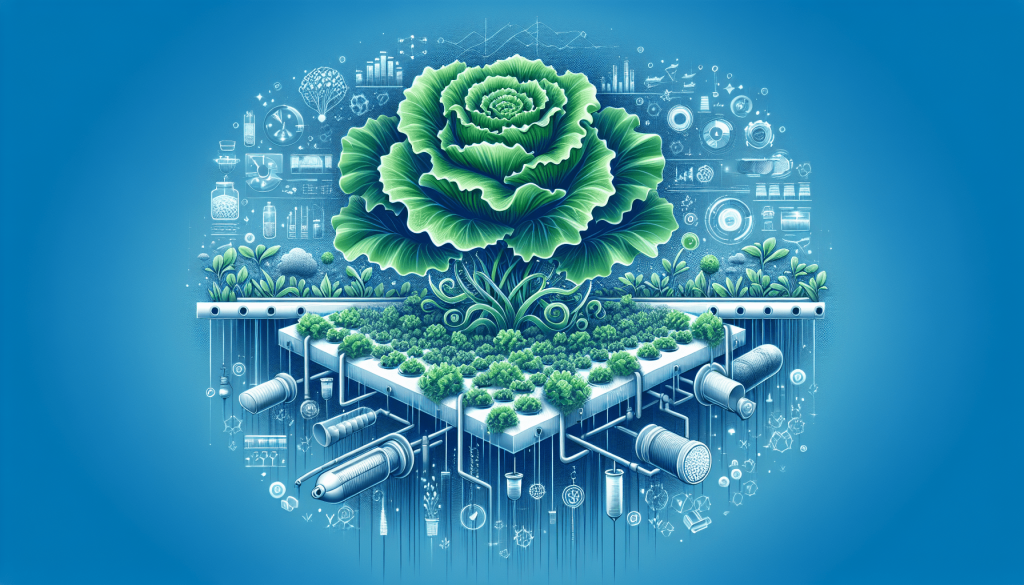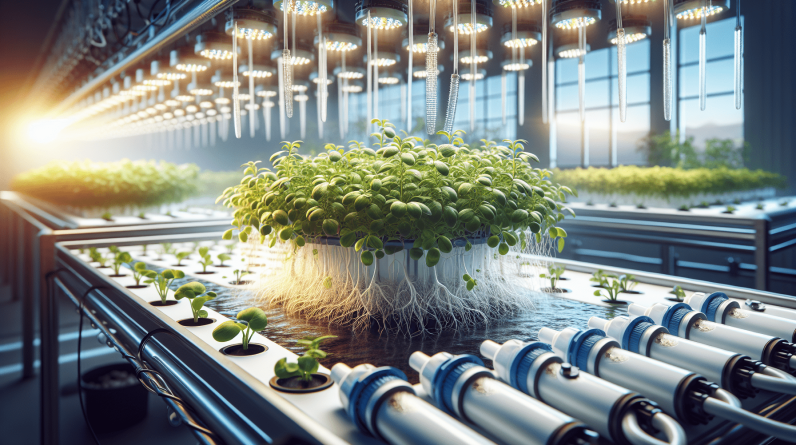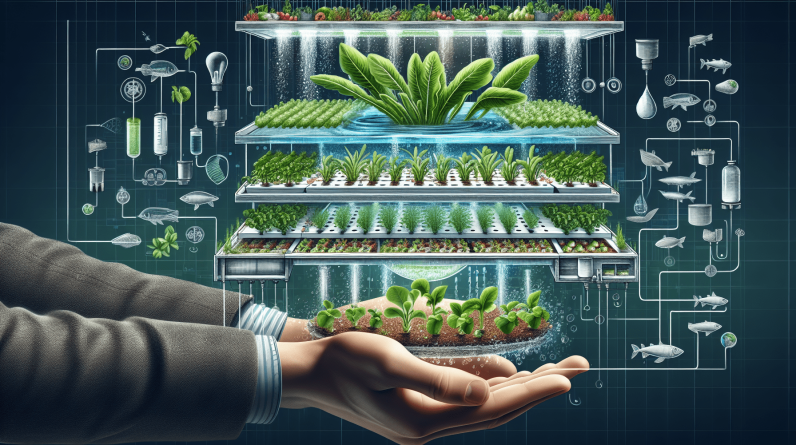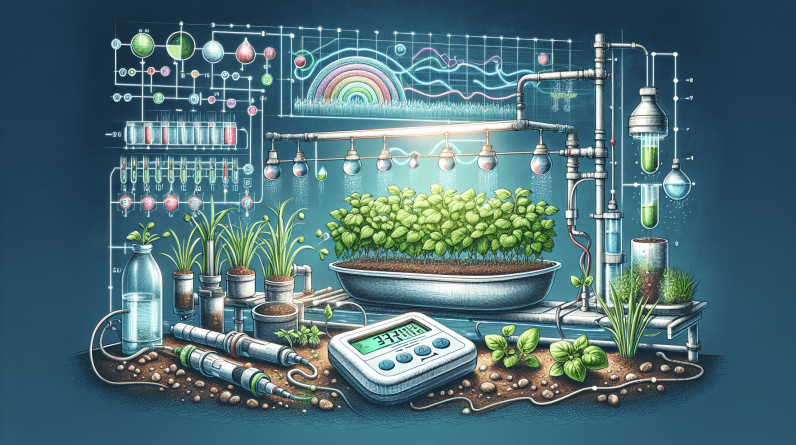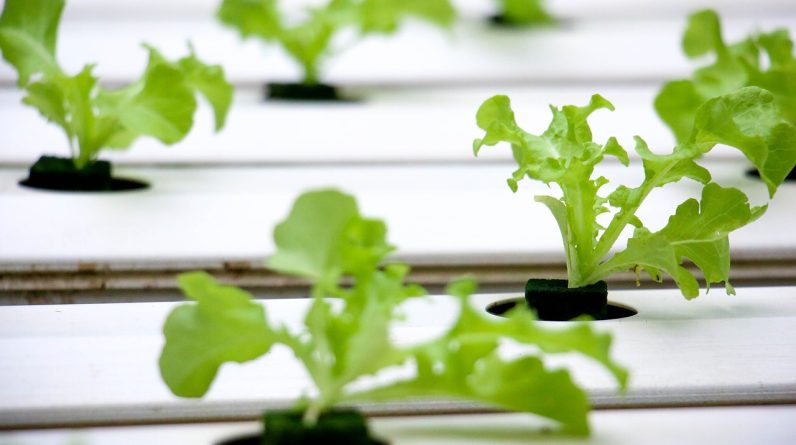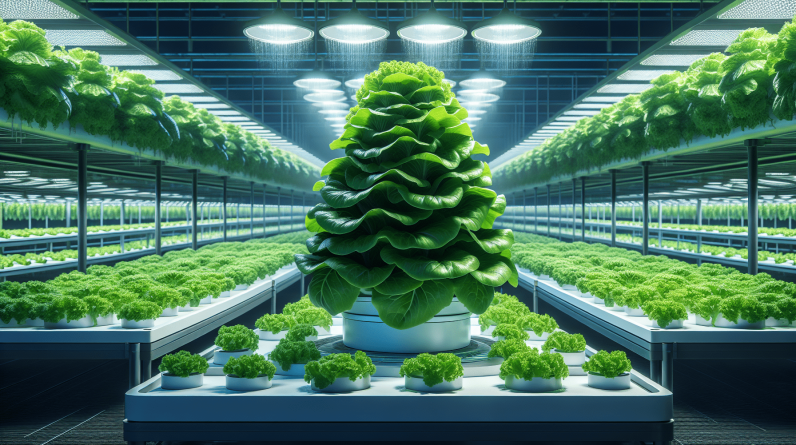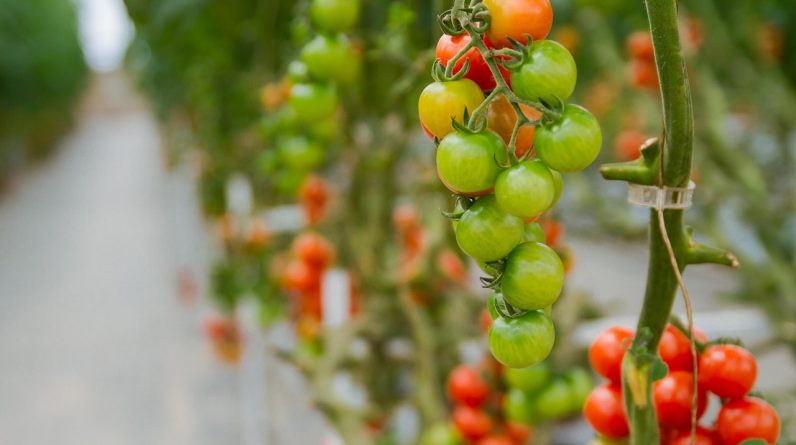
Are you interested in starting your own hydroponic garden but not sure where to begin? Look no further! In this article, we will provide you with a concise list of the 10 essential supplies you need to kickstart your hydroponic gardening journey. From nutrient solutions to grow lights, we’ve got you covered. So, grab a pen and paper, because you won’t want to miss these must-have items for a thriving hydroponic garden!
Hydroponic System
Welcome to the world of hydroponic gardening! If you’re new to this innovative and exciting way of growing plants, you might be wondering what exactly is involved in setting up a successful hydroponic system. Don’t worry, we’ve got you covered. In this article, we’ll guide you through the essential supplies you’ll need to get started and explain the importance of each component. So, without further ado, let’s dive right in!
Grow Tent
First and foremost, you’ll need a suitable environment for your hydroponic garden, and a grow tent is the ideal solution. These tents provide you with a controlled space, allowing you to easily manage the various elements necessary for successful plant growth. With features like reflective inner lining, ventilation ports, and sturdy frames, grow tents create an optimal setting for your plants to thrive and flourish. Plus, they are available in different sizes to accommodate the needs of your garden.
Hydroponic Reservoir
Next up, we have the hydroponic reservoir. This is where the magic happens – it’s the heart of your hydroponic system. The reservoir holds the nutrient-rich water solution and provides it to the plants’ roots, allowing them to absorb the necessary nutrients for growth. It’s crucial to choose a reservoir that is durable, lightproof, and easy to clean. Additionally, opt for a size that suits your garden’s needs, ensuring sufficient water volume can be maintained throughout the growth cycle.
Grow Lights
Plants need adequate light to carry out photosynthesis and promote healthy growth. Since hydroponic gardening often takes place indoors, providing the right amount and quality of light becomes crucial. That’s where grow lights come in. You have various options to consider, such as LED, fluorescent, or high-intensity discharge (HID) lights. Each has its own set of benefits, including energy efficiency, spectrum customization, and long lifespan. Choose a grow light system that suits your plants’ specific light requirements and ensures proper coverage for optimal growth.
Growing Medium
Now that we have the main components of your hydroponic system covered, let’s focus on the growing medium. In hydroponics, the growing medium takes the place of soil and provides support for the plants’ roots, allowing them to anchor themselves securely. Here are two commonly used growing mediums in hydroponic gardening:
Rockwool Cubes
Rockwool cubes are a popular choice among hydroponic gardeners due to their excellent water retention and aeration properties. Made from molten rock spun into fibers, these cubes provide a stable and sterile environment for the roots, promoting healthy growth. They come in various sizes, making them suitable for different stages of plant development. Rockwool cubes are reusable and can be easily tailored to accommodate the needs of a wide range of plant species.
Clay Pebbles
Clay pebbles, also known as expanded clay aggregate (LECA), are lightweight and porous balls made from kiln-fired clay. They serve as an inert growing medium, ensuring good drainage and adequate oxygen supply to the plant roots. Clay pebbles are pH-neutral and reusable, making them a sustainable option. They are particularly beneficial for hydroponic systems that require high levels of oxygen, such as deep water culture (DWC) or aeroponics.
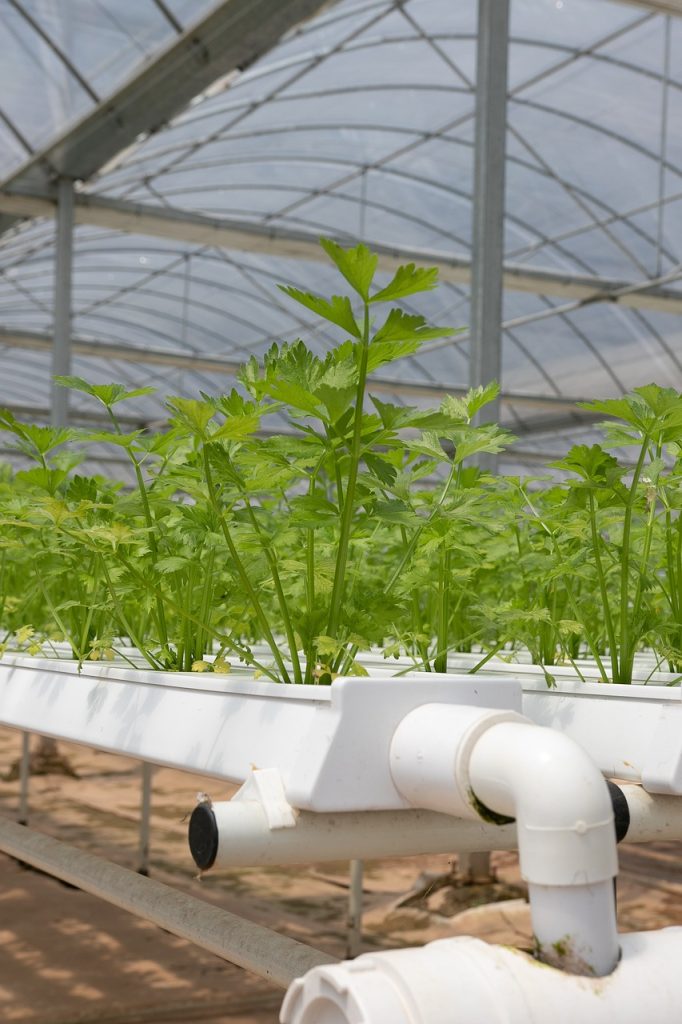
Nutrient Solution
One of the key advantages of hydroponic gardening is the ability to provide plants with a precisely balanced nutrient solution. Unlike traditional soil gardening, where nutrients can vary and be difficult to control, hydroponics allows you to tailor the nutrient solution to meet your plants’ specific needs. Here are some essential supplies for creating and maintaining the perfect nutrient solution:
Hydroponic Fertilizer
A hydroponic fertilizer is specifically formulated to provide the essential macro and micronutrients that plants need for healthy growth. These fertilizers come in liquid form, ensuring easy absorption by the plants’ roots. Look for a complete formulation that includes nitrogen (N), phosphorus (P), potassium (K), and other essential nutrients like calcium, magnesium, and iron. Choose a fertilizer suitable for your plant species and growth stage, as different plants have varying nutrient requirements.
pH Test Kit
Maintaining the correct pH level in your hydroponic system is crucial for optimal nutrient uptake by the plants. A pH test kit allows you to monitor and adjust the acidity or alkalinity of the nutrient solution. Most kits come with color-coded solutions and a color chart to help you determine the pH accurately. Aim for a pH level between 5.5 and 6.5, as this range is generally suitable for most plants. Regularly testing and adjusting the pH ensures that your plants can efficiently absorb the available nutrients, promoting healthy growth.
TDS Meter
Total Dissolved Solids (TDS) refers to the concentration of nutrients and other dissolved substances in your hydroponic solution. Measuring the TDS helps you monitor the nutrient strength and overall quality of the solution. Using a TDS meter, you can determine if your nutrient solution is too concentrated or diluted, allowing you to make the necessary adjustments. It’s recommended to follow the manufacturer’s guidelines for your specific plant species, as different plants thrive best within certain TDS ranges.
pH Adjusters
In some cases, you may need to adjust the pH of your nutrient solution to ensure it falls within the ideal range. Here are two pH adjusters commonly used in hydroponic gardening:
pH Up
pH Up is a solution that increases the pH level of your nutrient solution. It typically contains an alkaline compound, such as potassium hydroxide, which helps raise the pH when it falls below the desired range. Follow the instructions provided and add small amounts gradually, allowing time for the solution to mix and stabilize before retesting the pH.
pH Down
Conversely, pH Down is used to lower the pH of a nutrient solution that is too alkaline. This solution typically contains an acidic compound, such as phosphoric or citric acid. Similar to pH Up, add small amounts of pH Down gradually, allowing time for the solution to mix and stabilize before retesting the pH.
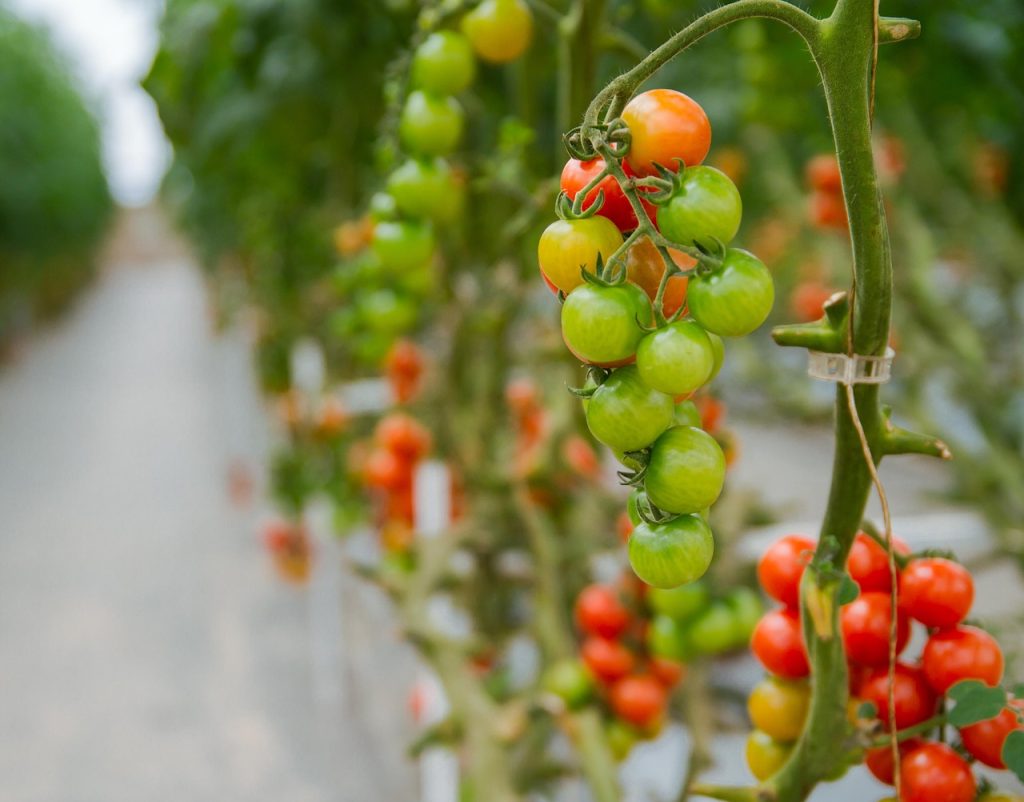
Air Pump and Air Stones
Adequate oxygen supply is vital for the roots to remain healthy and promote proper nutrient uptake. In hydroponics, the constant circulation of air is achieved through the use of an air pump and air stones:
Air Pump
An air pump provides the necessary oxygenation by continuously pumping air into the hydroponic reservoir. It helps maintain oxygen levels in the water, preventing root suffocation and the growth of anaerobic bacteria. Choose a quiet and reliable air pump that suits the size of your reservoir. Consider opting for energy-efficient models to keep your electricity usage in check.
Air Stones
Air stones are porous stones or ceramic discs that break the air pumped by the air pump into tiny bubbles. These bubbles rise through the nutrient solution, creating turbulence and ensuring optimal oxygen diffusion. The air stones also help with nutrient agitation, facilitating the absorption of essential elements by the plant roots. Place the air stones at the bottom of the reservoir to maximize oxygen distribution.
Water Pump
To ensure consistent delivery of the nutrient solution to your plants, a water pump is necessary. The pump circulates the nutrient solution from the reservoir to the growing trays or pots, allowing the roots to come into contact with the necessary nutrients. Consider the size and flow rate of the pump, as it should be sufficient to supply the plants without causing excessive turbulence. Look for a durable and waterproof pump that can handle the demands of your hydroponic system.

Net Pots
Net pots play a crucial role in providing support for the plants’ roots and allowing for proper aeration. These pots, typically made of plastic or mesh, come with numerous holes that allow the roots to extend beyond the pot and into the nutrient solution. They provide stability and prevent the roots from becoming excessively waterlogged. Choose net pots of appropriate size for your plant species, ensuring they fit securely in your chosen growing medium.
Timers
When it comes to hydroponics, timing is everything. The use of timers allows you to automate various processes, ensuring consistent light cycles and efficient nutrient distribution. Here are two types of timers commonly used in hydroponic gardening:
Light Timer
A light timer controls the on and off cycles of your grow lights, mimicking natural day and night periods. Different plants have different light requirements, so ensure you set the timer according to the specific needs of your plants. Consistency in the light cycle is essential to avoid stressing the plants and ensure proper growth.
Pump Timer
For systems that use a water pump, a pump timer is essential to regulate the nutrient delivery intervals. It allows you to set specific intervals for the pump to turn on and off, ensuring the plants receive the proper amount of nutrient solution without drowning the roots. Adjust the pump timer based on the growth stage and specific watering needs of your plants.
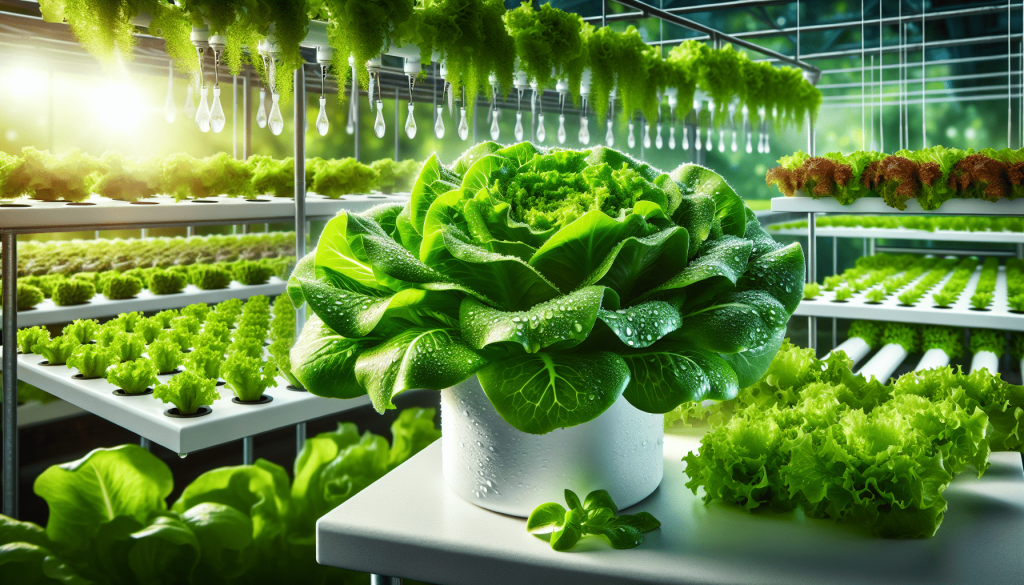
Thermometer and Hygrometer
Maintaining the ideal temperature and humidity levels in your hydroponic garden is crucial for plant health and productivity. Monitoring these factors is made easy with a simple thermometer and hygrometer:
Thermometer
A thermometer helps you measure the ambient temperature within your grow tent or hydroponic area. Different plants have specific temperature preferences, so ensure you maintain the appropriate range for optimal growth. Most thermometers come with digital displays, making accurate readings quick and easy.
Hygrometer
A hygrometer measures the humidity levels in your hydroponic environment. Maintaining the right humidity range is essential for preventing issues such as mold growth and plant stress. By keeping track of the humidity, you can make adjustments as needed, ensuring your plants thrive in the best possible conditions.
pH Test Kit and TDS Meter
Lastly, let’s touch upon the importance of the pH test kit and TDS meter, which were briefly mentioned earlier. These tools become invaluable in maintaining a healthy and productive hydroponic garden:
pH Test Kit
As previously mentioned, a pH test kit allows you to monitor and adjust the pH level of your nutrient solution. Regular pH testing is crucial, as fluctuations can impact nutrient availability and plant health. By staying on top of this, you can ensure your plants are receiving the optimal pH levels for nutrient uptake.
TDS Meter
The TDS meter mentioned earlier is essential for monitoring the concentration of dissolved solids in your hydroponic solution. Maintaining the proper nutrient strength is vital, as very high or low TDS levels can negatively impact plant growth. Use the TDS meter to regularly measure the nutrient solution and make any necessary adjustments to maintain an ideal balance.
And there you have it – a comprehensive guide to the essential supplies for your hydroponic garden. From the initial setup with a grow tent and hydroponic reservoir to the proper use of grow lights, nutrient solutions, and timers, each component plays a vital role in your plants’ success. By carefully considering these supplies and their functions, you’ll be well on your way to cultivating a thriving hydroponic garden right in the comfort of your own home. Best of luck on your hydroponic gardening journey!
